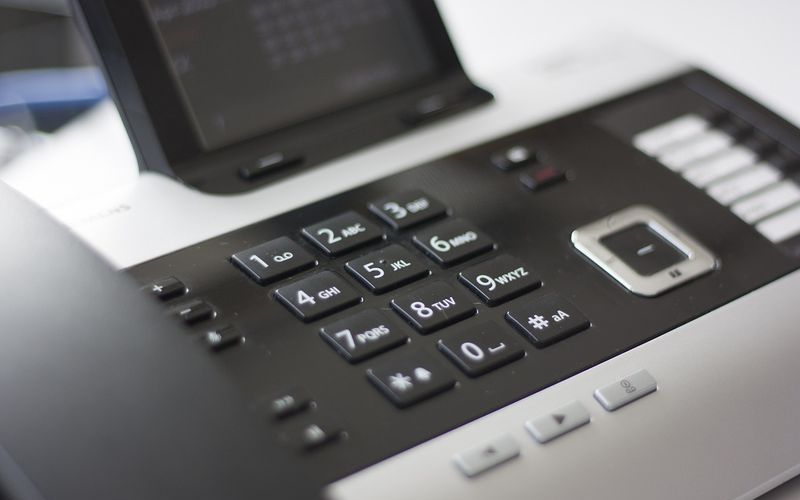
Here are some things that the sales person on the other end of the phone doesn’t want you to know – but really, you should.
What They Don’t Want You To Know
We feel that more than ever, there are some pretty misleading and sometimes slightly immoral sales pitches currently happening in the telecoms industry; especially in regards to cloud or “hosted” telephony and the ISDN switch-off. In this article, we'll be addressing those issues so you're ready for when the next sales person calls up.
"BT are switching off ISDN next year"
For many people, being told that BT is going to switch off their telephone lines tomorrow, next week, or next year is quite a daunting concept. Don’t let it be, because it’s not true. BT will not be stopping your lines tomorrow and your business will not come crumbling down.
The truth behind the matter is that BT WILL eventually stop serving ISDN lines, and alternatives WILL have to be discussed and thought about. Will it happen tomorrow though? No. Currently the date has been set that BT will stop selling ISDN lines by 2020 - but the switch-off won’t happen until 2025. …I’m sure we can all agree that’s still some time away and that the dates could still be pushed back even further if the infrastructure is not built in time.
“Hosted telephone systems are cheaper”
Although this is somewhat true on the short-term, when compared to the typical lifespan of a telephone system (10 years), hosted is not always cheaper. This is especially the case when there are a larger number of users.
Many sales people will tell you the cloud is the future and that you need to move to VoIP. Although this is somewhat true due to the ISDN switch, it may not be the best option for everyone OR you don’t need a brand new system – I will elaborate on this further.
Firstly, a Hosted Phone System may not be best for you if:
- Your business prefers to pay outright for products.
- You have poor internet speeds (without access to higher speeds).
Let’s compare an on-premise PBX system and a hosted phone system…
With the On- Premise PBX system you have to take into account that items will generally cost more upfront. Of course, on new installations, we can generally offer finance packages to help spread the costs over a term.
Although this would change from one business to another, the general idea for an on-premise PBX is you will need:
- The PBX system
- Your handsets
- Your telephone lines
- Licenses
- Installation
This can all add up to a scary cost, but once financed over a (for example), 3 or 5 year term, can become much more manageable. If or once paid fully/ outright the only cost you would incur would be your monthly line rental fees, call charges and support (which is recommended but optional).
In comparison to this, a basic hosted phone system generally only requires the following:
- Subscriptions
- Internet
- Handsets
Now, on some deals, you may be able to take internet at X price, and get the handsets free, which in some instances if you’ve reaches a certain threshold of handsets can actually be more cost effective – even if you don’t end up using the internet line.
The main difference between the hosted system and the on-premise PBX telephone systems are that you will never own your system. Effectively you are leasing it for the duration of the contract: 12, 24, 36 or even 60 months are standard lengths. Similar to a lease car, at the end of the contract, you can choose to renew (and get new hardware) or terminate. If you terminate you will have to return the equipment or keep your handsets if you have paid them upfront (which are generally tied down to a particular service provider’s network). However, this will vary from provider to provider.
For small businesses and start-ups this can be the perfect solution as the upfront costs are low and users can be added and removed easily.
A positive for the hosted telephony solution is that many companies offer free support with the phone system. Please note that this does not apply for all re-sellers.
Things to take into consideration before signing a contract for a hosted telephone system:
- Minutes in bundles – Are they included? How much is included? What are the call charges if you go over your allocated minutes?
- Contract length – A 12 month contract will be more expensive per month than a 60 month contract however once you’ve signed the contract you will be “locked in” by many businesses.
- Support costs – Here at GPS Telecoms we offer free lifetime support to all of our hosted customer along with access to our ticketing system and support desk. This is not the same however for all resellers. Make sure their support is reasonably priced, or free.
- Setup fees – a phone system for £5.50 a month sounds great, but many resellers will add on setup fees for each phone with a not so generous price tag.
- After Introductory offer pricing – Check that the pricing received on your original order does not increase if it is an “introductory offer”. A phone system could start at £5.50 per user per month for the first 12 months and then increase to £30 per phone thereafter.
Wrapping Up
To wrap up, as with any contract you may be taking out, regardless of the telephone system, we advise proper due diligence. Exactly the same as other tech; both the on-premise PBX systems and the Hosted telephony platforms have their pros and cons – but which suits you and your business best?




